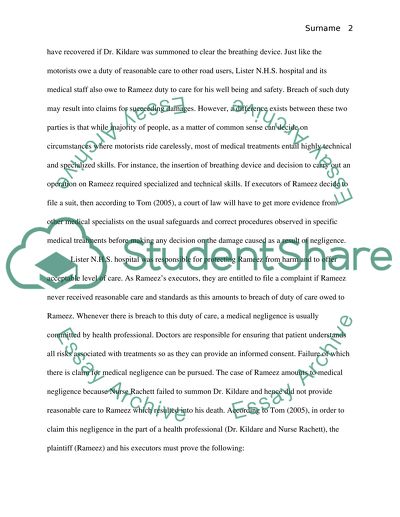Cite this document
(“MEDICAL NEGLIGENCE Essay Example | Topics and Well Written Essays - 1000 words”, n.d.)
Retrieved from https://studentshare.org/law/1459138-medical-negligence
Retrieved from https://studentshare.org/law/1459138-medical-negligence
(MEDICAL NEGLIGENCE Essay Example | Topics and Well Written Essays - 1000 Words)
https://studentshare.org/law/1459138-medical-negligence.
https://studentshare.org/law/1459138-medical-negligence.
“MEDICAL NEGLIGENCE Essay Example | Topics and Well Written Essays - 1000 Words”, n.d. https://studentshare.org/law/1459138-medical-negligence.


